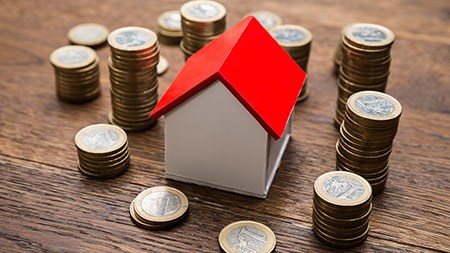Ongoing, escalating fuel costs – with yet another hike on the cards for September (2018) - coupled with rising traffic congestion in South Africa’s cities, is playing an increasing role in the locations selected where consumers will buy or rent a home. Ultimately, this also impacts on housing demand and price.
“The ongoing increase in the fuel price is contributing to the way we live and work,” says Dr Andrew Golding, chief executive of the Pam Golding Property group. “It’s also changing the way companies think in regard to office layouts and the time employees spend in the office, with many adopting far more flexible working hours including work-from-home scenarios for both entrepreneurs and staff, and co-work spaces which eliminate seldom-used space.
“All of this has a direct bearing not only on the built environment but also on where people can and choose to live, and there are three distinct trends which are apparent.
"Firstly, the advent and growing demand for ‘live, work, play’ hubs in various centres around the country, where people can walk to work and enjoy access to all amenities and leisure activities right on their doorstep. This is also an environment which buzzes with activity way beyond the ‘traditional’ 8 to 5 working hours, which is why the mixed-use development business model is proving so successful in prime commercial nodes or hubs.
“Secondly, the rising popularity of properties on key transport corridors for easy commutes via rail, road and air, including those who live within easy reach of airports for business travel as and when required.
"And then there is a third group of people who are opting out of the frenetic pace of city life to country environments where they can enjoy a slower paced lifestyle either in retirement or while still generating income.”
Dr Golding says at the same time, the advent of electric cars will surely impact on property buying trends once these vehicles become more affordable and electric charging stations become readily available. In South Africa, there appear to be three fully electric vehicles on sale in the market – BMW’s i3 and i8 and the Nissan Leaf, while various manufacturers have several battery-hybrid vehicles available locally, including Volvo and Mercedes Benz.
While globally electric cars are already catching on, here in South Africa charging stations are limited. According to Nissan South Africa, there are about 90 EV charging stations in Gauteng, available at shopping centres, Nissan dealerships and office blocks. Areas which immediately spring to mind where you can charge your electric car include Melrose Arch in Johannesburg and Constantia Village in Cape Town’s Southern Suburbs. Developers of new complexes and mixed-use developments are also looking to include electric charging facilities for vehicles, says Laurie Wener, Pam Golding Properties senior executive for developments in the Cape region.
“In Cape Town mixed-use developments or precincts such as 117 on Strand and 16 on Bree usually include retail, residential and possibly, offices, thereby catering for work, home and lifestyle, and offering a vibrant lifestyle while providing for preservation of property values. Other components may include indoor and outdoor recreation areas with pools and/or a gym, business facilities and even a crèche. All these buildings have fast connectivity, cutting edge security and now electric car charging facilities are being included, along with solar energy, reticulated grey water and in some instances boreholes or springs,” says Wener.
The aptly named Nissan Leaf is currently said to be the world’s top selling electric vehicle and the forward-thinking manufacturer recently launched a solar energy and battery storage system in the UK for homes, from which residents can also charge their Leaf electric cars. The venture, named Nissan Energy Solar, allows UK homeowners to generate, store and charge electric vehicles with their own renewable energy – a so-called ‘generation to acceleration’ system.
Fuel price impacts on house prices
Says Sandra Gordon, Pam Golding Properties senior research analyst: “Rising fuel prices also have an impact on house price appreciation. According to FNB and Statistics SA, during the period 2011 to 2014 a declining petrol price and rebounding economy coincided with rising house prices. Conversely, from 2015 to 2017, as petrol became more expensive and household finances came under pressure, growth in house prices slowed.” (See attached graph).
Jet suits and flying cars?
With technology advancing at a rapid rate, it’s also not surprising to see that jet suits and flying cars are no longer fiction but becoming reality – inventions which will further impact on the way we access transport and perceive suitable locations to call home.
For $450 000, you can already buy a jet suit with five mini-jet engines which can reach a speed of about 50km an hour and altitude of 3 650m, for three to four minutes of flight, while Kitty Hawk has developed a personal flying vehicle, with other start-ups geared for personal use in the pipeline.




